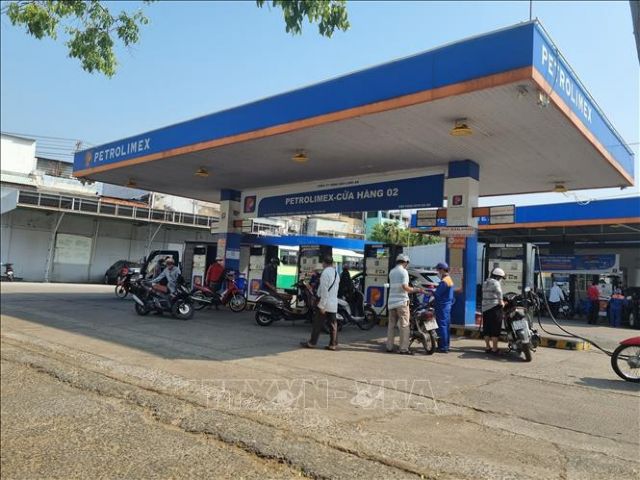A draft resolution on the environmental protection tax rates on petroleum, oil and lubricants, was submitted to National Assembly Standing Committee yesterday for final approval.

A draft resolution on the environmental protection tax rates on petroleum, oil and lubricants, was submitted to National Assembly Standing Committee yesterday for final approval.
The Ministry of Finance proposed to cut tax rates for gasoline by VNĐ2,000 VND (US$0.088) per litre, diesel, fuel oil, and lubricant by VNĐ1,000 per litre, grease by VNĐ1,000 per kg, and kerosene by VNĐ700 per litre.
The ministry recommended that the resolution should take effect from April 1 and last until December 31, 2022.
With the adjustments, the estimated amount of environmental tax would fall by over VNĐ29 trillion ($1.26 billion), leading to a reduction in the State budget collection.
There have been seven consecutive price surges since the beginning of the year. Just last week, petrol was nearing VNĐ30,000 per litre, a record-breaking price in Việt Nam.
According to the General Statistics Office of Việt Nam, the cost of petrol accounts for 3.52 per cent of the country's total production cost; 30 to 40 per cent in a number of industries. Such high petrol prices will create significant pressure on income and spending, as well as inflation and economic growth.
Experts said the price surges will be felt by almost all, including key industries such as agriculture, seafood, manufacturing and transport. It may also cancel out the government's support and stimuli to rejuvenate the economy.
On top of the ongoing conflict between Russia and Ukraine, Việt Nam also suffered from the Nghi Son Refinery and Petrochemical - one of the largest in the country - cutting back production by 40-45 per cent, said economist Cấn Văn Lực in a conference discussing petrol price surges yesterday in Hà Nội.
Speaking on the sharp price surge recorded last week, Nguyễn Tiến Thỏa, president of the Valuation Việt Nam Association said it was partly because of the way Việt Nam regulate petrol prices.
Thỏa said petrol prices are typically adjusted daily, even hourly, based on global indexes. However, Việt Nam still employs a model that adjusts price every 10 days (20 days in case of a long holiday period such as Tết).
Thỏa said this is not ideal because at times the country was forced to adjust to significantly higher prices, sending the whole economy into a shock. It also gives retailers reason to speculate and hoard products to wait for higher prices, further undercutting supply.
He said the current model has shown severe weakness and limitations and must be addressed to avoid an unnecessary mismatch between prices in the domestic and the global markets. — VNS





